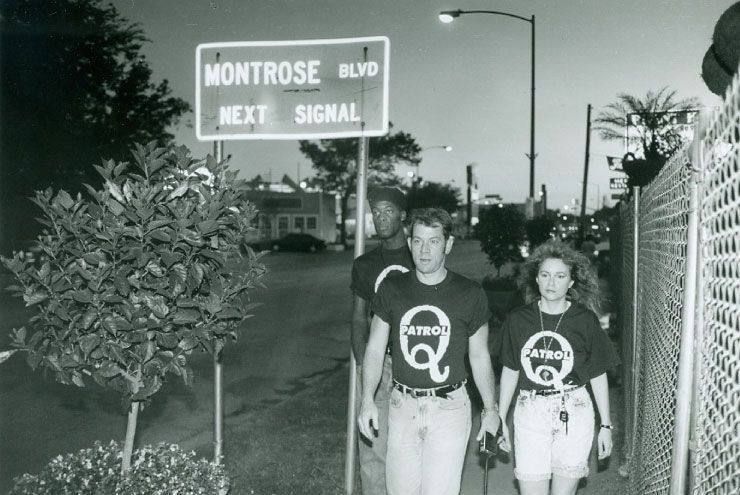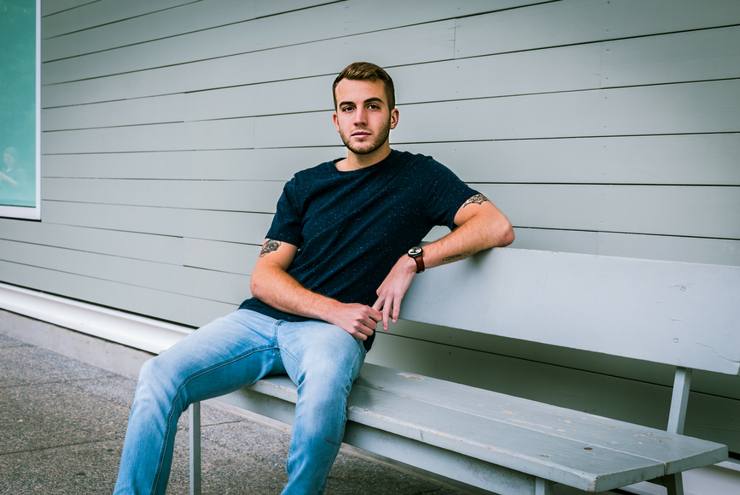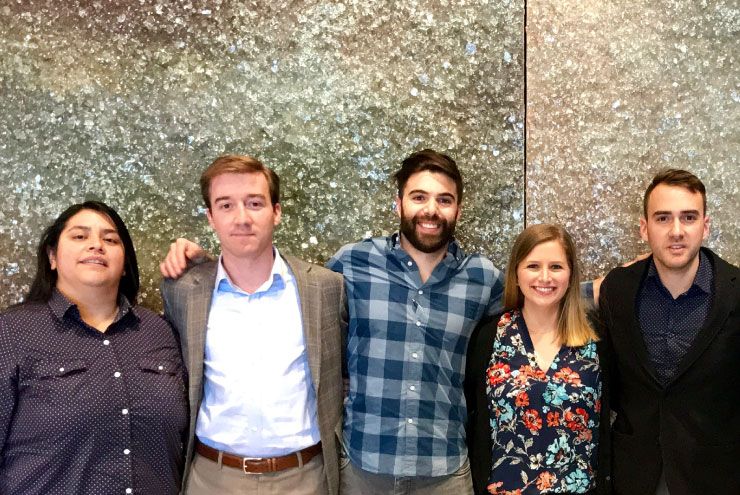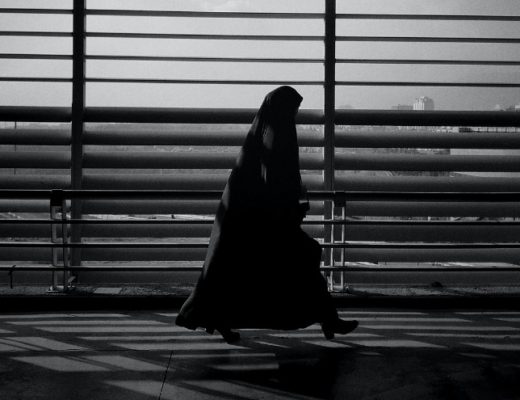By Noah Diaz
“…they think the gay community is an easy target. LET’S SHOW THEM WE’RE NOT!”
These exclamatory words jump off the page of a 1995 advertisement in the Houston Voice, a Houston LGBTQ publication. The call to action? To join Q-Patrol.
On November 6, 1991, a group of Queer Nation Houston members met in a diner in Houston’s Montrose gayborhood. Four months earlier, one of their own, Paul Broussard, was beaten and murdered on those same streets. Three days earlier, another, Philip W. Smith, faced the same fate. Both men were gay, in their twenties, and were brutally killed after leaving Heaven, a popular gay nightclub in the heart of Montrose. The Queer Nation Houston members gathered with a mission—to stop the vicious murders of gays in the city.
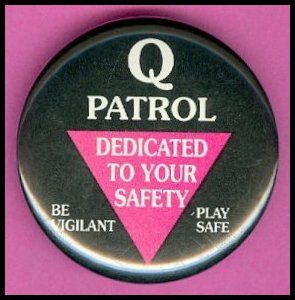
Photo: Houston LGBT History
From this meeting, Q-Patrol was born. Founded as a volunteer-run foot patrol of Montrose, Q-Patrol members had a strong presence as they walked the streets: they patrolled in groups of four, had matching T-shirts, and carried radios to alert Q-Patrol headquarters of any need for police action. The LGBTQ community quickly became familiar with these patrols, and a sense of ease began to settle over the neighborhood.
The Q-Patrol avoided being labeled as a vigilante group. The community understood that, while the group was not equipped to stop crimes, its members were trained to report incidents at a faster rate, as well as to write down the license plates of any vehicles loitering in the area or causing disturbances (such as yelling homophobic or transphobic slurs out of their windows, throwing trash at LGBTQ people, and even shooting guns at or toward people walking around the neighborhood). Q-Patrol volunteers would then send warning letters to the addresses associated with the license plates that had been documented.
Many of the culprits of these crimes were young, college–aged men who lived on the outskirts of the city and borrowed their parents’ cars to go on these gay-bashing sprees. Little did they know, a letter (usually on bright pink paper) would soon show up on their doorstep, reporting that the vehicle had been seen in Montrose and that the information had been sent to the authorities.
Within a few years, these petty loitering crimes, as well as more serious and violent crimes, had begun to decrease. Notably, as a direct result of the efforts of Q-Patrol, the Houston Police Department began to pay more attention to the issues facing the LGBTQ community in Montrose, and the two entities were able to establish a healthier working relationship.
After consistently operating for over 10 years, the Q-Patrol quietly came to an end. In 2002, an article was published in The Texas Triangle reporting that Q-Patrol was struggling due to a lack of volunteers and financial backing from the community. A generous donor stepped forward in a last-ditch effort to save Q-Patrol (which lasted several months), but the group ceased operations shortly after.
Perhaps Q-Patrol was no longer needed—ultimately, a reason to celebrate. Yet somehow, in 2019, we have found ourselves in a violent, homophobic, and transphobic culture that mirrors that of 1991. Presently, homicides targeting the LGBTQ community are still rampant. Most impacted are our transgender siblings, particularly transgender women of color, in the South—at least four trans women of color have been killed in Texas this year alone. This number is likely even higher, as some victims’ deaths go unreported, while others are not correctly identified as transgender by the media.
This leaves the LGBTQ community and our allies with the question of what we can do. Queer people have long been the targets of violence, yet the Q-Patrol is proof that we have not always looked the other way, or relied on others for our protection. Let’s learn from our shared past, take matters into our own hands, and not let others do what we are capable of doing for ourselves. Let the battle cries of Q-Patrol make their way back into our daily lives. “…they think the [LGBTQ] community is an easy target. LET’S SHOW THEM WE’RE NOT!”
A huge thanks to HoustonLGBTHistory for being a resource for this article.


